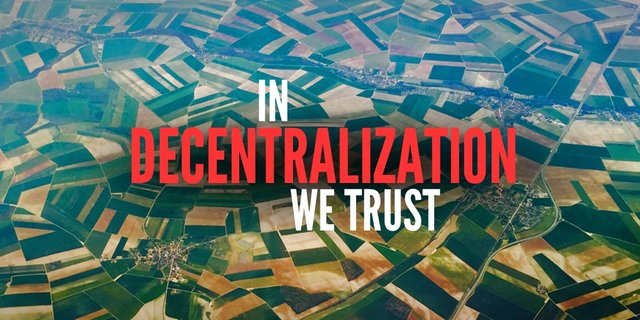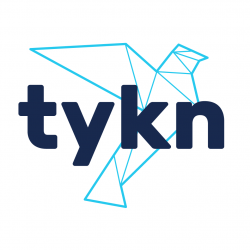Tykn's Identity and The Blockchain -- On Trust, Order and Decentralization.


The blockchain is still early and is paving the way for a new world with healthy, community-centric ecosystems. Just over a short time, we have seen several innovative and disruptive products and services built on the technology itself. We have social networks and online communities that incentivize its users as members and we have platforms that act as global computers for the development of more of these projects (EOS, ETHEREUM, NEO, WAVES, etc). All of these are built with cryptography, the real science behind blockchain technology.
However, the internet, in general, is still not in synchronization with the offline. Digital identity still remains one of the oldest and hardest problems on the Internet today. This is true because, with little or no standard means of identification on the web, the internet cannot be a safe place for just about anyone yet.
Tykn offers a solution to global identity both online and offline by leveraging blockchain technology. This would mean making the current paper-based identification model obsolete by providing digital ones that are immutable, accessible and verifiable anywhere, almost instantly. This would also mean reducing the level of anonymity on the internet by providing a means of identification and document verification that tallies with the same identity we have offline.
Libertarian blockchain enthusiasts might not be too comfortable with this approach, especially since the concept of decentralization, trustlessness and anonymity have been largely misunderstood. They believe that with identity comes a bit more centralization and the need for trust. However, this post aims to show how trust is also a mover of order in the society and human relationship and how Tykn can make the world and the internet a safer place.
Today's Tip: Plan your travel to explore parts of the united states with Tourist Checklist, they offer quite some things to do in various parts of the world.

On Trust and Decentralization.

Some blockchain enthusiasts believe that the more decentralized and complex the cryptography behind a blockchain is (complex, in the sense that it doesn't allow for easy manipulation and change of code by a few computers), the better the governance model and security of the chain.
However, while people preach utmost decentralization, we might have missed the point altogether. Decentralization wasn't created to abolish Centralization entirely. Rather, it was created to allow for a greater level of transparency and security. Transparency and security on the internet today is almost meaningless since there are almost inexistent methods for security agencies to trace malicious actors. The blockchain is even more cryptic, complex and almost without order today, making investments in the crypto space a very risky venture.
Decentralization on blockchain technology is super-innovative because it allows for information to be spread across a network of computer, making it difficult for a single group of people to have the utmost control of that information. Hence, it is great for platform and community governance. However, it doesn't have to be completely disconnected from reality and the prevalent processes that power the world in order to be seen as 'trustless'.
People do not have to be completely anonymous on the internet as well. Instead, the inclusion of a standard system for identity will make these platforms and processes run interoperably with the conventional paper-based identity systems, a solution tykn seeks to create.
Trust and Decentralization can coexist. In fact, it already exists in every chain, which brings us to the next point on this article; Anonymity. Who is really behind the names and public keys? Can they be trusted?

On Trust and Digital Anonymity.

Another popular belief in blockchain ecosystems (especially in POW chains and ecosystems with non-human-readable address systems) is that there is more security with anonymity. While anonymity comes with a great deal of security, such security induces friction and will most likely hamper the growth of the ecosystem in the long run. With no digital means of identification, people can be anyone and anything on here and would only need to prove that they're good until they aren't anymore.
Anonymity on the blockchain may not be the in-all-be-all solution. In order to successfully create an ecosystem online and achieve smooth interoperability between the online world with the offline one, there should be a reliable reputation system that reflects who we really are. This is also important in preventing bad actors especially since most blockchain communities are big on security,

Also, identity on the internet is necessary because commerce and several industries thrive on trust and identity. At a point of purchase of a commodity or service, you have to trust the other person for quality and then offer payment for that product or service. People prefer to rally around trusted and reputable individuals in the online world, just as they do offline. They crave authenticity. A great example of that is the blue checkers on Twitter. With such a strong identity system, it is easier for people to accept value from trusted sources since they know and can identify such people behind the names/projects.
If our online reputation correlates with our offline one. Then, to a large extent, it will affect the way we comport ourselves on here, which is necessary for a healthy chain unless the idea of decentralization and anonymity is to create a different reality altogether like in the Ready Player 1 movie.
Tykn understands the need for information control and individual sovereignty. That is why it is being developed on The Sovrin ecosystem and currently serves as a 'Steward' (Sovrin's equivalent of Block producers) alongside IBM, T-Labs and other high-flying companies. Apart from just providing a global identity system, Tkyn takes information security and anonymity seriously by allowing individuals to have the sovereignty and control over their personal information.
Case uses? Sure! With the help of Tykn, we can easily tell which newest ICO has real people behind it and which one doesn't because for such projects, the team members will have to make a part of their personal details public. In politics, (both on-chain and off-chain), contestants cannot forge documents and unvalidated certificates out of thin air onto the internet because it will have to be verified over a network of computers on Sovrin's blockchain.

Would Identity buttress safety and good conduct?
Tykn will also work as a force to checkmate fraudulent documents and fake identity on the internet. It will promote safe practices.

Tykn believes that a digital means of identity will lead to less fraudulent activities and cybercrimes. If blockchain technology is going to remove the need for middlemen and their monopoly, then it is going to need order, and a ransom system to make users abide by safety rules and the right conduct in their respective endeavours, else there will be chaos.
Take a recent case, for example, About a month ago, a cryptocurrency project called PRL got hacked by the same person who created it in the first place. He was supposedly playing a big role in the project as the founder. Next thing the community realized, someone reactivated the ICO code of the smart contract with an owner key, sent about 200ETH to the smart contract and then received an equivalent value of PRL tokens in an undisclosed wallet. Transfers all of that to Kucoin and dumps it on the rest of the community.
Maybe things would have been better if the said contract creator wasn't completely anonymous. Though the availability of smart contracts solves the issue of trust and conduct to a large extent, that is not to say there are no loopholes. You still have to trust the contract creator not to pull the whole thing apart.

The element of trust is necessary and digital identity will become the next big thing on the blockchain. Which is why a project like Tykn, and blockchains like the Sovrin protocol, etc are leading the pack.
In a couple of years to come, Tykn would have remodelled not just conventional paper-based identity systems in the globe, we will also have those exact same reliable reputation and identity system to further boost transparency and verify true human character and authenticity on the internet and the blockchain as well. Which in a way, is one of the essences of community, engagement and governance.
Intrigued?
There are several other use cases of Tykn, including providing certification for governments, NGOs, and the healthcare industry as well as eradicating cases of 'invisible persons' on the planet entirely by making birth certificates accessible to families. However, this post has taken a different perspective on the subject matter to discuss the effects of digital identity and decentralization as it concerns Tykn.
That was a long read, and I'd love to talk more about this project in the comments section below. Please send in questions and contributions. Also, you can learn more about this project by simply clicking on the links below to check out the company's website and whitepaper material.
To stay updated with the latest news, events and press releases from the company, please visit the official links to Tykn's social media handles below as well. Thank you.

Official Links
Project Website: https://tykn.tech
Products & Services: https://tykn.tech/project-zinc/
Tykn extended overview sheet: https://docs.google.com/document/d/1pNRO6aOb5eK4s8PVv7yS4x9TkqrGglCJ4jebU1F3Yzo/edit#
Link to a press release: https://blog.tykn.tech/tykn-wins-best-ico-at-the-blockchain-innovation-conference-d8b650340e88
Next event: https://www.decentralized.com
Tykn on Social Media
Facebook: https://www.facebook.com/Tykn.tech/
Medium: https://blog.tykn.tech
Twitter: https://twitter.com/tykn_tech
Article resource: Blockchain myths of decentralization and anonymity
</div